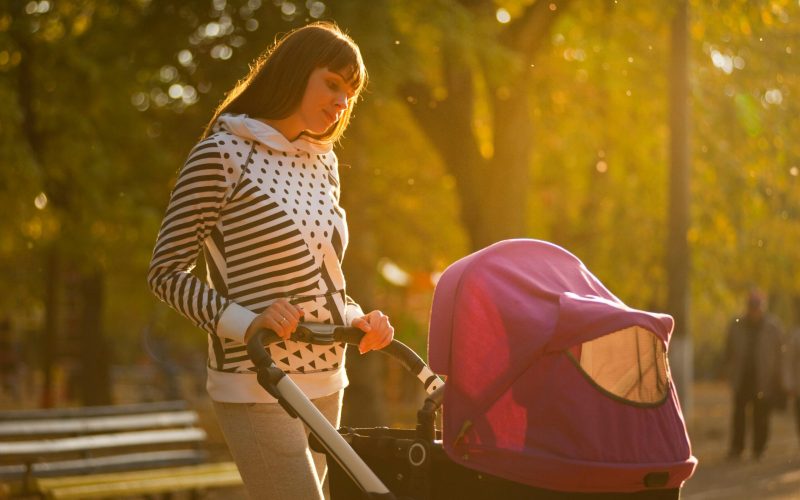by Ryan T. McGuire
When a Sunday school teacher fails to report suspected child abuse, can she be held legally responsible? This question recently came before the Arizona Court of Appeals in Doe v. Warr (2025), a case that has quietly but significantly expanded the scope of who can be considered a mandatory reporter under Arizona law. The ruling challenges long-held assumptions about the boundaries between professional and personal responsibility in child protection, creating new uncertainties for anyone who finds themselves caring for children outside traditional professional or family relationships.
Mandatory reporting statutes are like a two-sided coin where both sides are distinct but intertwined. On one side, mandatory reporting statutes tell us who can be held responsible for failing to report suspected child abuse or neglect by expressly stating who qualifies as a mandatory reporter. For example, teachers and healthcare workers must report suspected child abuse or neglect and can face consequences, criminally and professionally, for a failure to do so. On the other side, those same statutes tell us who cannot be held responsible for failing to report suspected child abuse or neglect. Bartenders and lumberjacks, for example, are not mandatory reporters and are less likely to be held liable for failing to report child abuse or neglect. However, a recent case from the Arizona Court of Appeals has altered this former side of the coin by making the category of who “can” be liable for a failure to report a bit broader.
This article will examine the case of Doe v. Warr (2025) and its expansion of who can be held liable for failing to report suspected child abuse. This article will explain mandatory reporters, analyze the case of Doe v. Warr, and question what this means for mandatory reporting laws.
Mandatory Reporting
Mandatory reporters are identified in A.R.S. § 13-3620, which is the statute that establishes who is and who is not a mandatory reporter. [1] The statute establishes that mandatory reporters may be held criminally liable, but they can also be found civilly liable if they fail to report suspected child abuse and/or neglect. This was the case in Doe v. Warr, where the children who were meant to be protected by mandatory reporting statutes civilly sued Warr under a theory of negligence.
While A.R.S. § 13-3620 provides a non-exhaustive list of professionals who are considered mandatory reporters. This includes those who often come in contact with children as part of their jobs, such as healthcare professionals, law enforcement, child welfare workers, school personnel, and care providers. Non-professionals who have contact with children, such as parents, stepparents, and legal guardians, are also mandatory reporters. To understand what transpired in Warr, it is important to note that A.R.S. § 13-3620(A)(5) includes “[a]ny other person who has responsibility for the care or treatment of the minor” to the list of mandatory reporters. This was commonly understood as a catch-all statement, with a professional care relationship being a prerequisite for mandatory reporting liability.
Doe v. Warr [2]
In Doe v. Warr, three children were sexually abused by their father over a period of years. Warr, who was their Sunday school teacher and occasional babysitter, knew about the ongoing abuse but did not report it to authorities. The father was later charged with his crimes, but committed suicide before he could be convicted. The mother was convicted of failing to protect her children and sentenced. The children sued Warr for civil negligence, claiming she had a duty to report the abuse under the mandatory reporting statutes.
The issue was whether Warr owed a duty of care to the children such that she could be found negligent for failing to report. There are two main ways in which an individual owes a duty of care to another individual. First, a person can owe a duty of care under common law, such as if a person has a “special relationship” to the other, like a parent and a child. Second, a person can owe a statutory duty of care, like those who are made mandatory reporters under A.R.S. § 13-3620.
In the case of Warr, the Arizona Court of Appeals determined there was no common law duty of care, but that Warr did owe a duty of care to the children under A.R.S. § 13-3620. For the first time, the Court of Appeals directly found that Arizona’s mandatory reporting statute applies to non-professionals who have responsibility for children’s care but are not a family member or guardian. The Court of Appeals reversed and remanded for further proceedings to determine whether Warr had a statutory duty to report under the mandatory reporting statute.
What does this mean for Mandatory Reporting Laws?
The decision in Warr indicates that who qualifies as a mandatory reporter is not just limited to professionals and family members. After Doe v. Warr, mandatory reporters are also anyone in a position to be responsible for the child.
The implications of Warr are important, as they create an obligation to report in instances that would not commonly be understood as creating a duty of care. Before Doe v. Warr, a neighbor who agreed to keep an eye on a child for ten minutes would be unlikely to be categorized as a mandatory reporter under the statute, as the relationship to the child was temporary and fleeting. However, after Doe v. Warr, the same neighbor could be a mandatory reporter and be held responsible for failing to report suspected child abuse or neglect. Admittedly, Warr spent more time with the children than a neighbor who watches a child for five minutes. However, the court does not provide clear guidance to determine whether there is a set duration or length of time that distinguishes between a mandatory reporter and a third party with an inconsequential relationship to the children.
In conclusion, the Doe v. Warr decision marks a significant shift in Arizona’s mandatory reporting landscape, expanding potential liability beyond the traditional categories of professionals and family members. While the court’s interpretation may strengthen child protection by casting a wider net of responsibility, it also creates substantial uncertainty about the boundaries of mandatory reporting. Without clearer guidance on what constitutes sufficient “responsibility for care,” individuals in informal caregiving roles, potentially including neighbors and volunteer mentors, face the difficult task of determining whether their relationship with a child triggers legal reporting obligations. As this precedent develops, practitioners and community members alike will need to navigate this expanded definition as courts work to clarify the practical boundaries of this new interpretation.
Sources:
[1] A.R.S. § 13-3620
[2] Doe v. Warr, 566 P.3d 342 (Ariz. Ct. App. 2025).
Author:
Ryan T. McGuire is a law clerk at Woodnick Law PLLC and a second-year student at the Sandra Day O’Connor College of Law. He leverages his master’s degree in philosophy to produce thorough legal research and writing, with a focus on family law matters. Ryan brings a strong foundation in legal analysis and academic interests spanning family, criminal, and intellectual property law.



